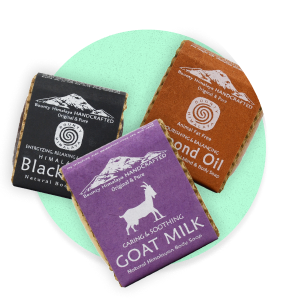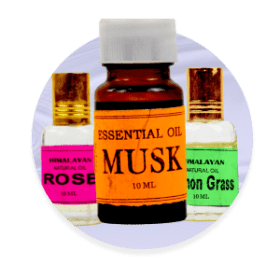Uncategorized
What is Fair Trade and Why is it necessary?
Conventional trade is not as sustainable as we want it to be. When you trace back the roots of a ‘handmade’ or ‘local’ product, like herbal tea, you can see how local producers and sellers don’t get their fair share of the profit from the products. Companies buy products from local producers and artisans in bulk at a low price. Then they sell these products at a much higher cost and earn profits. The producers, who are mostly from lesser developed regions and have no means to trade with consumers themselves don’t get paid fairly for their hard work. This is why we need Fair Trade to secure the rights of marginalized producers and workers, especially in rural regions.
According to Fairtrade Foundation in the UK, “Fair Trade is a system of certification that aims to ensure a set of standards are met in the production and supply of a product or ingredient”. For farmers and workers, Fair Trade ensures workers’ rights, safer working conditions, and fairer pay. For consumers and supply companies, it means high-quality, ethically produced products. All in all, Fair Trade changes the way trade works through better prices and product quality for everyone involved.
Origin of Fair Trade:
To understand what Fair Trade entails, we have to go back to the 1950s, when the Fair Trade movement began. Europeans and Americans travelling to different cuntries observed the struggles of local artisans and farmers in working and running their businesses. With little to no market, they weren’t able to cover the cost of production. So, these travellers would purchase some of these products and return to their countries to sell them at a higher price, then bring the profits back to the local artisans and farmers.
Of course, this process is open to exploitation. Without much means to communicate and travel, there is no transparency as to how and what their products were sold for. The tourists could keep most of the profit for themselves. The local farmers and artisans might not be paid for their labour.
In the 1990s, Fair Trade USA founder Paul Rice, while working with coffee farmers in Nicaragua, wanted to ensure the rights of the marginalized workers. His work is the foundation for what we now know as Fair Trade Certification. Rice returned to the US in 1997 and founded Fair Trad USA, bringing the certification model to large companies that sold commodity goods like cocoa, bananas, and tea produced by marginalized workers from all over the world. The foundation spread knowledge among big corporations as to why it was necessary to sell products under the Fair Trade terms. They began encouraging people to consume ethical products with the Fair Trade Seal on them. More countries began advocating for Fair Trade and created their own terms to ensure their people were paid fairly while exporting goods and selling them domestically.
Fair Trade Certification:
With so many people looking to shop ethically, the term Fair Trade gets thrown around a lot. As you look through products in stores, you will encounter several other labels, seals, and certifications on the packaging. This can get confusing as to what these labels mean and if they can be trusted. The Fair Trade label on the other hand is recognized and trusted globally. According to a 2015 research by GlobeScan, nine out of ten consumers who recognize the Fair Trade Certification Mark regard it as a trusted label. This kind of trust in consumers is justified by how strict and serious the Fair Trade standards are.
First, the certification process is complex and rigorous. It can take anywhere between 6 to 9 months for a product or a company to achieve the Fair Trade Certified status. Different organizations have different standards and ways to certify a company. But in general, the organization does a pre-assessment of the factory through interviews and meetings with the management and the workforce. An unbiased third-party auditor is enlisted to evaluate the products’ performance and whether they align with the Fair Trade standard. The label is finally given.
According to different terms, the audit process is repeated within a set time frame; usually annually. And when criteria are not met, the producer or supplier organization can face suspension until remedial actions are taken. Sometimes, the certification is even evoked.
Fair Trade Standards and their importance:
Fair Trade standards include a range of economic, social, and environmental criteria that producers and suppliers must meet to attain or retain the Fair Trade certification.
Economic Criteria: The economic criteria require manufacturers and suppliers to distribute profits more equitably. It includes a Fair Trade Minimum Price which ensures a safety net against falling prices. The minimum prices should never fall below the market price ideally. There is also a fixed Fair Trade Premium price which provides farmers and artisans with additional money to invest in their business. This sort of incentive encourages local producers to improve the quality of their products and communities. The economic standards also provide long-term trading partnerships; buyers need to pre-finance farmers and workers for the supply of their products.
All of this helps to improve the socio-economic condition of farmers and workers, as well as to stabilize their operations.
Social Criteria: The social standards are typically for small-scale producer organization level. The standard covers things like safe working conditions, job security, democratic self-organization, decision-making among workers, transparency, etc. Fair Trade also prohibits exploitative child labour and gender discrimination. Where hired labour is the norm, the pay rates for workers must be equal to or higher than the minimum legal or regional wages.
Environmental Criteria: The environmental standard for Fair Trade certifications aims to minimize the impact on our planet while considering the geographical and financial realities of workers. Although Fair Trade doesn’t require organic certification, it encourages ecologically and agriculturally sound practices including responsible waste and waste management, protecting natural resources and soil fertility, and minimal use of pesticides and GMO (genetically modified organisms) seeds. This eco-friendly cultivation rewards workers by increasing Premium and Minimum prices.
Why should we care about Fair Trade?
In the end, it all comes down to fair prices for a product. As consumers, we should get products that meet our requirements, are healthy, and are ethical. For underprivileged artisans and farmers, they should receive fair pay for the hard work they put in. If we want locally made, organic commodities, or culturally significant artworks, we need to recognize the labour behind these products. Companies shouldn’t cynically keep the profits to themselves and exploit labour in any circumstances.
Further, Fair Trade certified brands, like Himalayan Merch, care for the local farmers and workers. We aim to provide a marketplace for underprivileged farmers and artisans. Not only domestically, but we also provide international exposure for products made locally in Nepal. On one hand, you get genuine and authentic products at the best price. And on the other hand, you support and incentivize workers. Suppliers and manufacturers that wish to sell products made in Nepal in bulk can also reap the benefits of genuine products at the fairest price. If you want to purchase commodity products, apparel, local goods, art, and souvenirs, we facilitate shipping worldwide.
Fair Trade ensures the rights of consumers and labourers. Buying products that are labelled with the Fair Trade seal means you stand against labour exploitation and wage discrimination. A small change in our shopping habits can provide someone with a steady flow of income.




